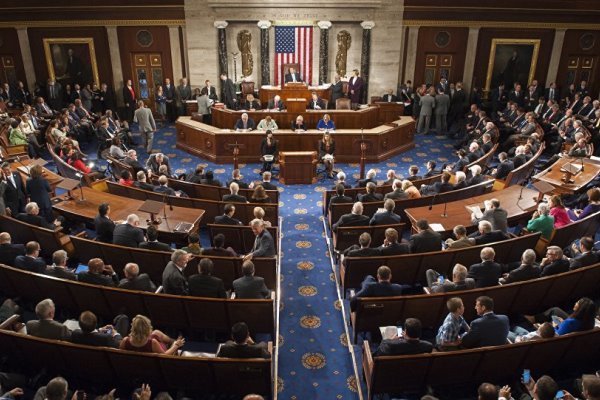Dr. Hormoz Jafari, in an interview with the website of the Strategic Council on Foreign Relations, referred to the measure of the House Foreign Affairs Committee in approving the bipartisan bill “Stop Iranian Drones Act” which aims to ban any supply, sale or transfer of military drones and their parts from Iran or its import to Iran, and noted: “Such measures are in addition to the sanctions that the US Department of the Treasury recently imposed on the Iranian drone industry.
He added: After the drone strikes on the Mercer Street ship and then the US base “Al-Tanf” in Syria, those hostile actions began in US political and legislative circles at the level of administration and Congress.
The expert on international affairs said: Senior US military and political officials have openly expressed concern over the development of Iran’s drone industry. Gen. Mackenzie, commander of CENTCOM in the Middle East said at the conference that ‘for the first time, we are conducting our operations and missions without absolute air supremacy. In fact, he pointed out that in such area, Iran has brought the absolute superiority of the United States in the region under question.
Jafari added: When the drone strikes on Aramco in Saudi Arabia took place, US officials and military experts spoke of the maturity of Iran’s missile and UAV industry, and considered it a development that would change strategic considerations.
The international affairs expert, saying that such an act, which was passed at the congressional level against Iran, is an amendment to Article 107 of the CAATSA Act, which imposed sanctions on our military industries as well as on Russia in 2017, added: In this amendment, the UAV issues have been addressed in a precise and clear manner. Of course, this law is still at the level of presenting the bill and has not been approved by the Congress and has not been approved by the US House of Representatives; but given the Democrats’ support for it, it will be probably passed.
Regarding the consequences of approval of the bill, Jafari stated: Naturally, the more international interactions of a country in the field of different industries have normal conditions, the better it will be for acceleration of its progress and development, and that country can use international experience, gain access to more advanced parts or gain access to international markets for sale. Such a bill targets the production and sales chain, but what is stated in its title “Stop Iranian Drones Act” will certainly not happen.
He continued: Iran’s military industries are indigenous and domestic, while the parts of such drones have dual applications, including in the entertainment industry and used in toys, and cannot be simply sanctioned and access to them be restricted.
Unstoppable Iran’s UAV industry
Saying that such an Act could perhaps be the basis for further measures and that actions could be pursued at the international level and in the United Nations and the Security Council, Jafari added: What they are very concerned about is the possible access of the resistance forces to such drones at the region level. They want to limit such issue; but limiting and stopping Iran’s drone industry will never happen.
The expert of the Center for Technological Studies of the President’s Office, emphasizing that Iran’s UAV industry, the initial activities of which began in the 1980s, has reached a kind of maturity in the country and its knowledge has been institutionalized in the country, said: Iran’s UAV and missile industries are two of the most important dimensions of Iran’s military strength are in the region. Westerners have invested heavily in the construction of drones and offensive weapons. The United States has invested heavily in this area; but in terms of defense and missile defense system to target such drones, they have not been successful enough.
Stating that the United States has been seriously pursuing the research and building of defense systems against drones and the establishment of defense networks in this field for about two to three years, Jafari noted: In the US National Defense Authority Act 2021 it has been stipulated that the issue of developing missile defense systems in this area should be developed.
Referring to the need for Iran paying attention to the development of defense industries and maintaining the balance of power in the region, he stressed: Iran should invest more in this area to win and increase the flight time of such drones as much as possible and focus on making investment with regard to their load carrying capacity.
Jafari continued: Iran should also consider radar evasion and agility. The United States is testing laser weapons in the Persian Gulf to target small speedboats or drones, and Iran should invest more in such areas.
Saying that the United States has not yet provided drone defense equipment to countries in the region, he said: Iran should pay attention to be active in discussing the balance of power in this area so as not to disrupt the country’s path to becoming a drone superpower in the region.
The analyst of international affairs stressed the need to clarify the defense dimension of Iran’s military industry in the world public opinion and reject the dimension of aggression against the interests and national security of other countries, adding: Contrary to US claims, the growing power of Iran’s defense industry is not to destabilize the region, rather it is for the maintenance of the stability and security of the country and the region.










0 Comments